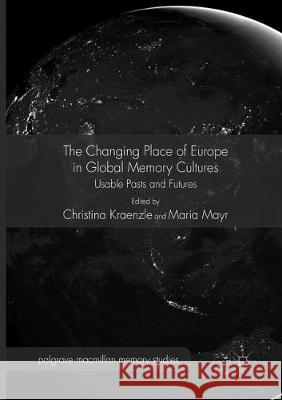The Changing Place of Europe in Global Memory Cultures: Usable Pasts and Futures » książka
topmenu
The Changing Place of Europe in Global Memory Cultures: Usable Pasts and Futures
ISBN-13: 9783319818313 / Angielski / Miękka / 2018 / 248 str.
Kategorie:
Kategorie BISAC:
Wydawca:
Palgrave MacMillan
Seria wydawnicza:
Język:
Angielski
ISBN-13:
9783319818313
Rok wydania:
2018
Wydanie:
Softcover Repri
Ilość stron:
248
Waga:
0.32 kg
Wymiary:
21.01 x 14.81 x 1.4
Oprawa:
Miękka
Wolumenów:
01
Dodatkowe informacje:
Wydanie ilustrowane











